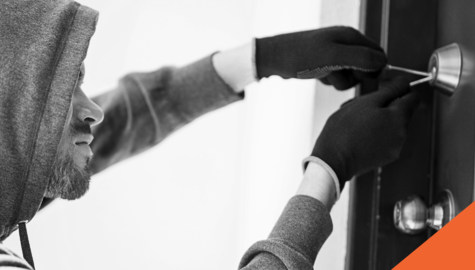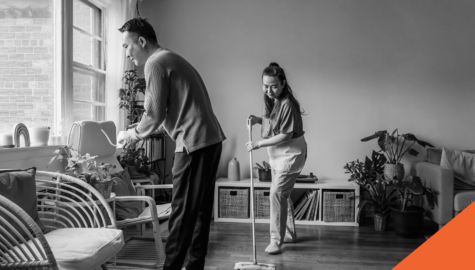Tips for Buying a Used Car
Thursday, 6 February 2025
Shopping for a car is an exciting experience that opens the door to new possibilities and adventures on the road. For many, buying a used car is an appealing option that offers great value and a wide variety of choices. While a brand-new vehicle has its appeal, buying a car that was previously owned can offer many benefits, such as significant savings and greater selection. If you decide to go this route, there are several factors to keep in mind that can help you make an informed purchase. In this blog, we will share valuable tips to help you navigate this process so that you can find the right car for your situation.
Please Note: This blog provides a general overview of buying a used car and auto insurance. It is not all-encompassing and should not be taken as specific advice. For expert advice regarding auto insurance, be sure to discuss your unique circumstances with a licenced insurance broker.
Tips for Buying a Used Car: Set a Budget and Research the Market
One of the first steps to take when buying a used car is deciding how much you want - or can afford - to spend. Whether you're planning to pay the full amount upfront or finance the purchase through regular payments, it's important to review your finances carefully. Consider all your monthly expenses and savings goals to determine a realistic budget that won't stretch your finances too thin.
Once you've set your budget, you can begin browsing vehicles that have been listed by private sellers or local dealerships. As you conduct this search, pay close attention to key factors such as mileage and the condition of the vehicle while also considering how much seating or cargo space you require, your typical driving conditions, and features such as fuel efficiency or safety technology. Reviewing these details can help you identify cars that offer the best value and fit your lifestyle.
A step that many people overlook is considering auto insurance costs. Insurance for a used car can often cost less than newer vehicles, but this will vary based on the specific vehicle you are interested in and other personal factors. Understanding these costs will also give you a more accurate picture of the expenses associated with each option.
Tips for Buying a Used Car: Inspect the Vehicle
Once you've found a car that you like, set up a time to meet with the seller so that you can see the vehicle in person. Begin your inspection by checking the exterior for any noticeable dents, scratches, or chipped paint. Don't forget to thoroughly inspect the windshield for cracks or chips, as repairs can be costly. Additionally, take a look under the car at the underbody and frame for signs of rust or leaks, especially around the exhaust system. Although it may seem inconvenient, this step is crucial for assessing the structural health of the vehicle.
Next, examine the interior for signs of wear and tear. Check the seats, dashboard, and even the pedals. Rips, stains, or scratches could indicate that the car wasn't well-maintained, which might affect not only its aesthetics but also its overall condition. While some damage can be covered up with detailing, any noticeable flaws could be a red flag that the car may have been poorly cared for.
Finally, lift the hood and do an initial inspection of the engine. Look for any signs of leaks, corrosion, or worn-out belts. Check the oil levels and quality - if the oil appears dirty or gritty, it could be a sign of poor maintenance. It's also a good idea to check the coolant levels and look for any fluid leaks that could indicate potential engine trouble. A thorough inspection in these areas helps you identify potential issues before moving forward.
If the seller of the vehicle is a dealership, there is a good chance that most significant imperfections or major issues will have been addressed; however, the same cannot be said for private sellers, as they typically don’t have access to repair and service resources that a dealership does. In either case, spotting flaws or maintenance needs can serve as a valuable negotiation tool, helping you secure a better deal on the car.
Tips for Buying a Used Car: Take It for a Test Drive
Once you've thoroughly inspected the car, ask if you can take it for a test drive. This is your opportunity to get a feel for how the car handles on the road. Pay attention to the way it accelerates, brakes, and steers. Listen for any unusual sounds, such as rattles, squeaks, or engine noises, which could indicate underlying issues. Test the brakes for responsiveness, and check if the car pulls to one side, which could suggest alignment problems. Take note of how comfortable the ride is and how the car shifts gears if it's an automatic or manual transmission. A smooth, quiet ride is usually a good sign, but if anything feels off, it could be a red flag.
Tips for Buying a Used Car: Have a Professional Inspection Done
If you are happy with the performance of the vehicle following your test drive, you should consider having a professional inspection completed. While your initial inspection can help you identify obvious issues, a certified mechanic can spot underlying problems that might not be visible to an untrained eye, such as issues with the transmission, suspension, or electrical system. This step could save you from making an expensive mistake, offering peace of mind and confidence when making your decision.
Tips for Buying a Used Car: Review the Vehicle History
Before moving forward with your purchase, it's important to request a vehicle history report. This will provide detailed records of the car’s past, including whether it has been in any accidents, has a clean title, has undergone major repairs, or has been subject to recalls. A clean history report can give you confidence in your decision, while a report showing accidents or other issues might prompt you to reconsider the purchase.
Once you've reviewed the vehicle history, ask to see the registration certificate. This document ensures the car is registered to the person selling it, helping you avoid the risk of buying a stolen vehicle. This is especially important when purchasing through a private seller. If everything checks out with the vehicle’s history and registration, you can feel confident moving forward. At this point, you can begin negotiating with the seller and, hopefully, finalize the sale to secure your new set of wheels!
Protect Your Ride to Complete Your Purchase
These tips on how to buy a used car should help you make a smart and informed decision when purchasing your next vehicle. From setting a budget and researching options to inspecting the car and reviewing its history, each step plays a crucial role in ensuring that you're making a sound investment. Once you've found the perfect car, don't forget about auto insurance. Before finalizing your purchase, be sure to reach out to a BIG broker or request a quote online to make sure you have the right coverage in place. Having the proper auto insurance ensures you're protected and ready to hit the road with confidence!



